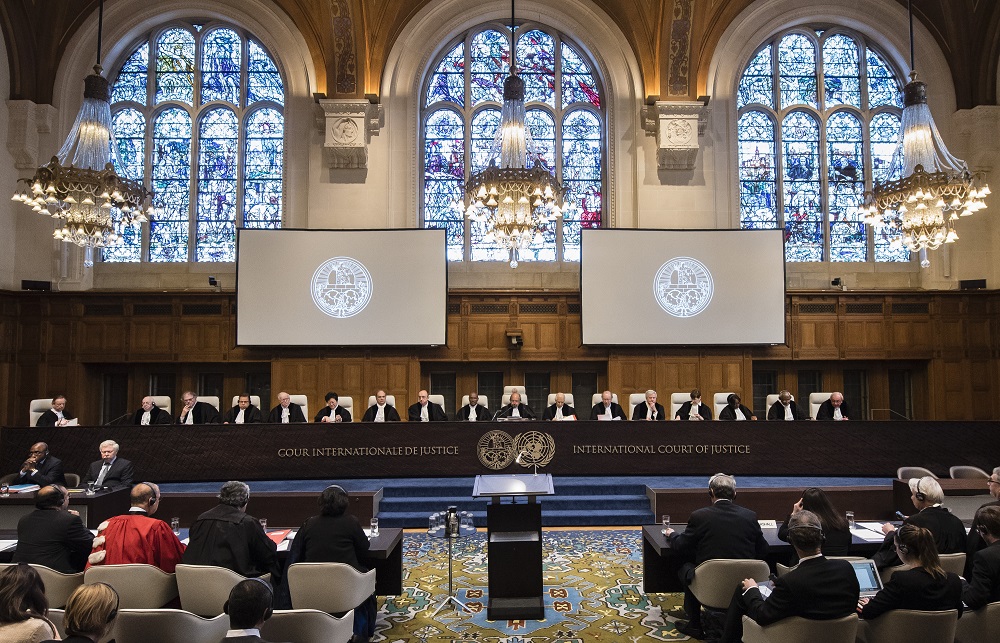
In an extremely tense environment posed by the recent developments in the Eastern Mediterranean, a plethora of reasonable ideas and suggestions have been raised by the jurists and scholars to submit all the problems between Greece and Turkey for settlement to the International Court of Justice (ICJ). Within the framework of these recommendations, it is worthwhile to briefly recall the position and reservation of Greece regarding the jurisdiction of the ICJ.
According to the Statute of the ICJ, the jurisdiction of the Court over international disputes is not compulsory [1]. States are free to decide whether the ICJ would handle a dispute to which they are a party. The Statute stipulates that parties to the Statute of the Court may “at any time declare that they recognize as compulsory ipso facto and without special agreement, in relation to any other State accepting the same obligation, the jurisdiction of the Court” (Art. 36, para. 2, of the Statute) [2].
As per the ICJ website, Greece has accepted the jurisdiction of the ICJ in 2015 with a long list of exclusions which constitute the core problems of Turkish-Greek dispute in the Aegean. In order to better understand the intention of these exclusions, the Greek declaration of 14 January 2015 regarding the compulsory jurisdiction of the International Court of Justice, in conformity with Article 36, paragraph 2 is cited in full below as reflected in the website of the ICJ:
“Greece
14 January 2015
Whereas the Government of the Hellenic Republic made a Declaration under paragraph 2 of Article 36 of the Statute of the International Court of Justice on the tenth day of January one thousand ninety four, in force for a period of five years and effective thereafter until such time as notice may be given to terminate that Declaration.
The Government of the Hellenic Republic having considered the said Declaration, hereby gives notice effective immediately of the withdrawal of that Declaration and replaces the same with the following Declaration:
I have the honour to declare, on behalf of the Government of the Hellenic Republic, that I recognize as compulsory ipso facto and without special agreement, in relation to any other State accepting the same obligation, that is on condition of reciprocity, the jurisdiction of the International Court of Justice with respect to all legal disputes referred to in Article 36, paragraph 2, of the Statute of the Court, with the exception of:
a) any dispute relating to military activities and measures taken by the Hellenic Republic for the protection of its sovereignty and territorial integrity, for national defense purposes, as well as for the protection of its national security;
b) any dispute concerning State boundaries or sovereignty over the territory of the Hellenic Republic, including any dispute over the breadth and limits of its territorial sea and its airspace;
c) any dispute in respect of which any other party to the dispute has accepted the compulsory jurisdiction of the Court only in relation to or for the purpose of that dispute; or where the acceptance of the Court's compulsory jurisdiction on behalf of any other party to the dispute was deposited or ratified less than twelve months prior to the filing of the application bringing the dispute before the Court.
The Government of the Hellenic Republic may however submit before the Court any dispute, which is hereby exempted, through the negotiation of a special agreement (compromis).
The Government of the Hellenic Republic further reserves the right at any time, by means of a notification addressed to the Secretary-General of the United Nations, and with effect as from the moment of such notification, to add to, amend or withdraw this Declaration.
Athens, 13 January 2015
(Signed) Evangelos Venizelos”[3]
Through this declaration, Greece excludes the disputes regarding the “breadth and limits of its territorial sea and its airspace” and the “military activities and measures taken by the Hellenic Republic for the protection of its sovereignty and territorial integrity, for national defense purposes, as well as for the protection of its national security.” By way of this declaration, Greece openly excludes its unlawful militarization of the demilitarized islands, and its unilateral, to say the least, strange claim of 10NM national airspace in Aegean while she has 6NM territorial waters from the list of disputes between the two countries. Additionally, it implicitly announces its intention to extend its territorial waters in Aegean over 6NM which has been already considered by the Turkish Grand National Assembly decision as "casus belli" by its decision of 8 June 1995[4].
Greece, through this declaration, reduces all the disputes in the Aegean to one, namely the continental shelf delimitation. In fact, the Greek Ministry of Foreign Affairs website states in this respect the following:
“… Within this framework, Greece is pursuing the resolution of the only outstanding difference between Greece and Turkey, namely the delimitation of the continental shelf, in accordance with regulations of international law and specifically the law of the sea…”[5].
It is possible to say that this position of Greece makes it almost impossible to solve the problems in the Aegean through international legal means. There is no doubt that the institution that needs to evaluate this uncompromising position of Greece in the most detailed way and to make a warning about the legal inconsistency of such an attitude is the European Union.
*Photo: https://www.wagingpeace.org
[1] “Charter Of The United Nations And Statute Of The International Court Of Justice” (United Nations, 1945), https://treaties.un.org/doc/Publication/CTC/uncharter-all-lang.pdf.
[2] “Declarations Recognizing the Jurisdiction of the Court as Compulsory” (International Court of Justice, 2017), https://www.icj-cij.org/en/declarations.
[3] “Declarations Recognizing the Jurisdiction of the Court as Compulsory: Greece” (United Nations, January 14, 2015), https://www.icj-cij.org/en/declarations/gr.
[4] “Türkiye Büyük Millet Meclisi Genel Kurul Tutanağı” (Grand National Assembly of Turkey, June 8, 1995), 19. Dönem 4. Yasama Yılı 121. Birleşim, https://www.tbmm.gov.tr/develop/owa/Tutanak_B_SD.birlesim_baslangic?P4=692&P5=t&page1=1&page2=1.
[5] “Issues of Greek - Turkish Relations,” Government, Helenic Republic Ministry of Foreign Affairs, 2020, https://www.mfa.gr/en/issues-of-greek-turkish-relations/.
© 2009-2025 Center for Eurasian Studies (AVİM) All Rights Reserved
No comments yet.
-
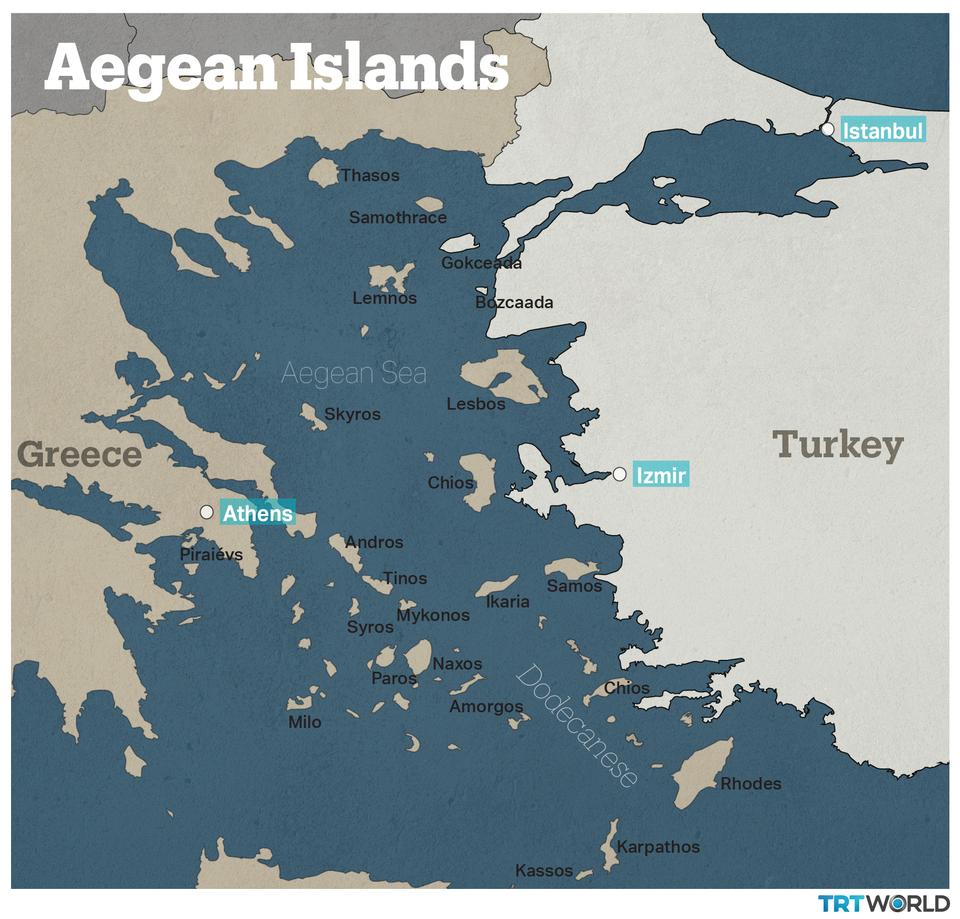 WHAT WILL RUSSIA DO IN RESPONSE TO THE REVISIONIST MILITARIZATION OF THE DODECANESE BY GREECE?
WHAT WILL RUSSIA DO IN RESPONSE TO THE REVISIONIST MILITARIZATION OF THE DODECANESE BY GREECE?
Teoman Ertuğrul TULUN 01.08.2022 -
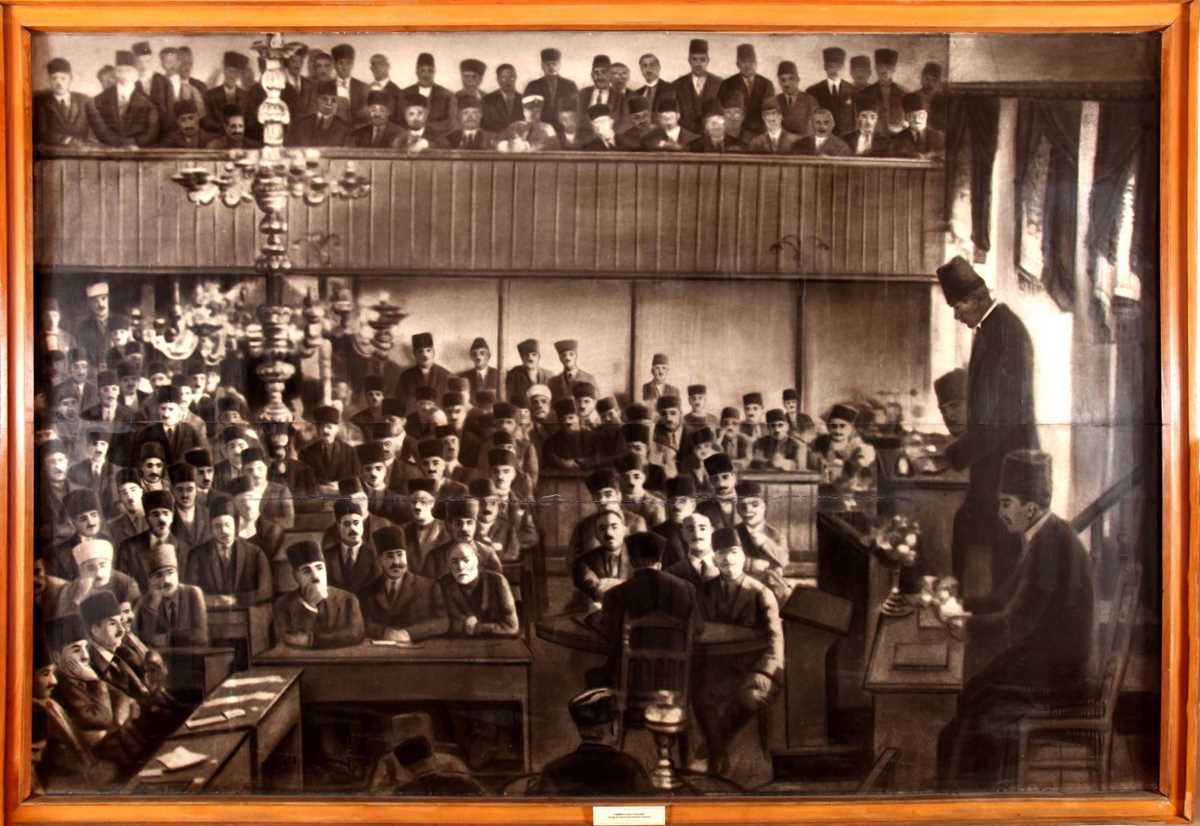 THE NINETY-SEVENTH ANNIVERSARY OF THE SIGNING OF THE PEACE TREATY OF LAUSANNE
THE NINETY-SEVENTH ANNIVERSARY OF THE SIGNING OF THE PEACE TREATY OF LAUSANNE
Teoman Ertuğrul TULUN 21.07.2020 -
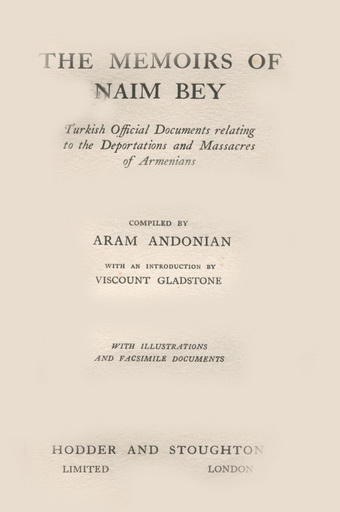 DISTORTING THE HISTORY THROUGH THE REALNESS OF NAİM BEY
DISTORTING THE HISTORY THROUGH THE REALNESS OF NAİM BEY
Teoman Ertuğrul TULUN 04.01.2017 -
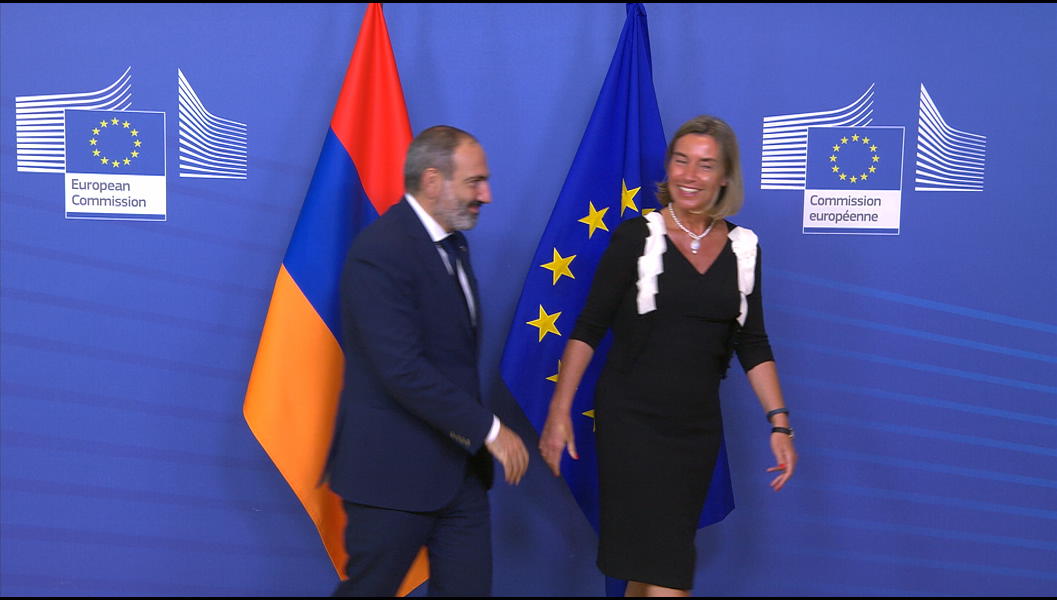 ARMENIA, EU AND A NEW FRAMEWORK FOR ECONOMIC ASSISTANCE
ARMENIA, EU AND A NEW FRAMEWORK FOR ECONOMIC ASSISTANCE
Teoman Ertuğrul TULUN 27.07.2018 -
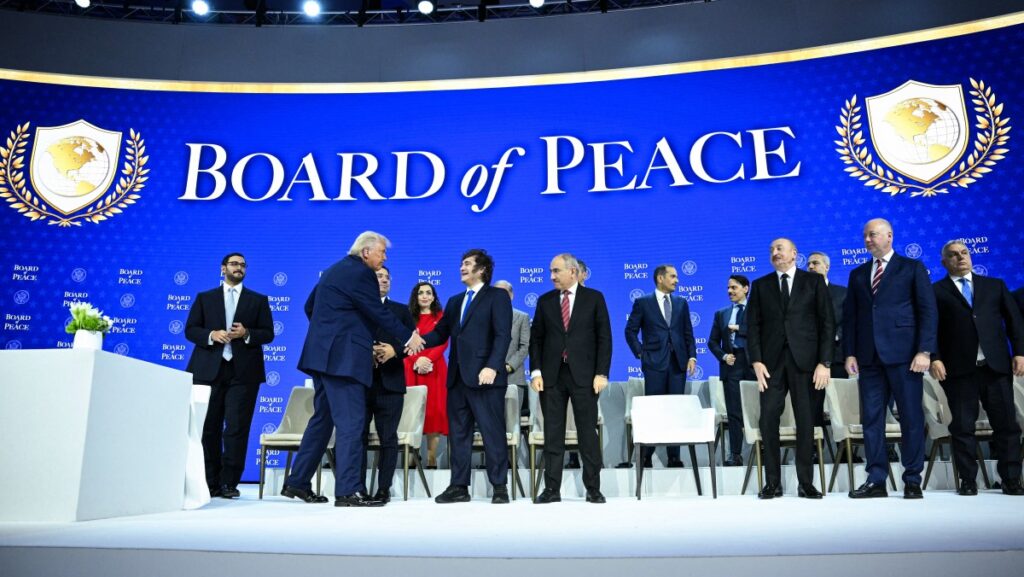 ROMANIA, THE BLACK SEA, AND THE LIMITS OF STRATEGIC SUBSTITUTION
ROMANIA, THE BLACK SEA, AND THE LIMITS OF STRATEGIC SUBSTITUTION
Teoman Ertuğrul TULUN 12.02.2026
-
 THE EU'S POLICY IS STARTING TO OVERLAP WITH PASHINYAN'S STANCE
THE EU'S POLICY IS STARTING TO OVERLAP WITH PASHINYAN'S STANCE
Hazel ÇAĞAN ELBİR 15.05.2024 -
 WHY SHOULD THE G-20 NOT ABOLISH ITSELF?
WHY SHOULD THE G-20 NOT ABOLISH ITSELF?
Hazel ÇAĞAN ELBİR 25.09.2023 -
 A NEW TENSION EMERGING IN THE SOUTH CAUCASUS CONCERNING THE ISSUE OF RELIGIOUS REPRESENTATION
A NEW TENSION EMERGING IN THE SOUTH CAUCASUS CONCERNING THE ISSUE OF RELIGIOUS REPRESENTATION
İlaha KHANTAMİROVA 31.07.2025 -
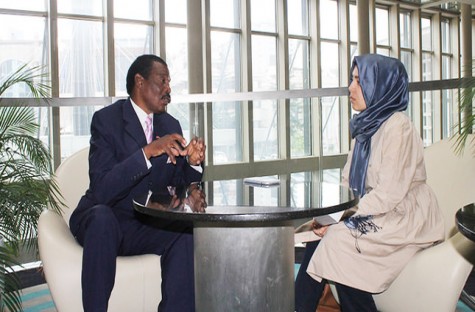 THE POPE AND GERMANY SELECTIVE OF TRAGEDIES, POLITICAL ANALYST SAYS
THE POPE AND GERMANY SELECTIVE OF TRAGEDIES, POLITICAL ANALYST SAYS
MERVE AYDOĞAN 14.05.2015 -
 THE ARMENIAN APOSTOLIC CHURCH’S US EASTERN PRELACY NARRATES THE TREASON
THE ARMENIAN APOSTOLIC CHURCH’S US EASTERN PRELACY NARRATES THE TREASON
Ahmet Can ÖKTEM 25.05.2021
-
25.01.2016
THE ARMENIAN QUESTION - BASIC KNOWLEDGE AND DOCUMENTATION -
12.06.2024
THE TRUTH WILL OUT -
27.03.2023
RADİKAL ERMENİ UNSURLARCA GERÇEKLEŞTİRİLEN MEZALİMLER VE VANDALİZM -
17.03.2023
PATRIOTISM PERVERTED -
23.02.2023
MEN ARE LIKE THAT -
03.02.2023
BAKÜ-TİFLİS-CEYHAN BORU HATTININ YAŞANAN TARİHİ -
16.12.2022
INTERNATIONAL SCHOLARS ON THE EVENTS OF 1915 -
07.12.2022
FAKE PHOTOS AND THE ARMENIAN PROPAGANDA -
07.12.2022
ERMENİ PROPAGANDASI VE SAHTE RESİMLER -
01.01.2022
A Letter From Japan - Strategically Mum: The Silence of the Armenians -
01.01.2022
Japonya'dan Bir Mektup - Stratejik Suskunluk: Ermenilerin Sessizliği -
03.06.2020
Anastas Mikoyan: Confessions of an Armenian Bolshevik -
08.04.2020
Sovyet Sonrası Ukrayna’da Devlet, Toplum ve Siyaset - Değişen Dinamikler, Dönüşen Kimlikler -
12.06.2018
Ermeni Sorunuyla İlgili İngiliz Belgeleri (1912-1923) - British Documents on Armenian Question (1912-1923) -
02.12.2016
Turkish-Russian Academics: A Historical Study on the Caucasus -
01.07.2016
Gürcistan'daki Müslüman Topluluklar: Azınlık Hakları, Kimlik, Siyaset -
10.03.2016
Armenian Diaspora: Diaspora, State and the Imagination of the Republic of Armenia -
24.01.2016
ERMENİ SORUNU - TEMEL BİLGİ VE BELGELER (2. BASKI)
-
AVİM Conference Hall 24.01.2023
CONFERENCE TITLED “HUNGARY’S PERSPECTIVES ON THE TURKIC WORLD"









